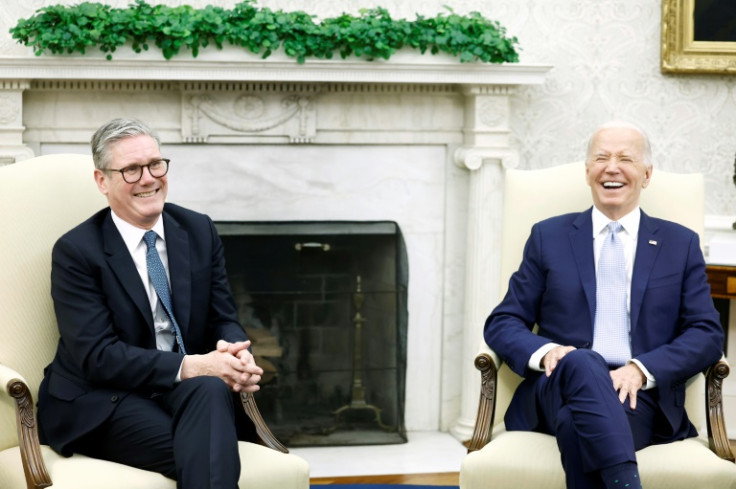Western Powers Sanction Iran Over Missiles To Russia

Western powers on Tuesday announced fresh sanctions on Iran for supplying Russia with short-range missiles for imminent use against Ukraine, calling it a dangerous escalation of the conflict that threatened European security.
Britain, France and Germany said they would cut aviation agreements with the Islamic republic and look set to sanction its national carrier Iran Air, claiming Tehran had repeatedly defied warnings about the weapons transfers.
London said the move would "restrict Iran Air's ability to fly in to the UK".
"This is a further escalation of Iran's military support to Russia's war of aggression against Ukraine and will see Iranian missiles reaching European soil, increasing the suffering of the Ukrainian people," the so-called E3 powers said.
"This act is an escalation by both Iran and Russia, and is a direct threat to European security," a joint statement read.
In London, visiting Secretary of State Antony Blinken said the United States would also impose sanctions on Iran and that Russia could use the Iranian missiles against Ukraine "within weeks".
Dozens of Russian military personnel have trained in Iran using the Fath-360 missile, which has a range of 75 miles (120 kilometres), he added.
"Iran's new president and foreign minister have repeatedly said that they want to restore engagement with Europe," he said.
"They want to receive sanctions relief. Destabilising actions like these will achieve exactly the opposite."
But Iran's foreign ministry spokesman, Nasser Kanani, in a post on X, said that the Western claims were false and a distraction from US backing for Israel in its war against Hamas militants.
"Spreading false and misleading news about the transfer of Iranian weapons to some countries is just an ugly propaganda and lie with the aim of concealing the dimensions of the massive illegal arms support of the United States and some Western countries for the genocide in the Gaza Strip," he added.
On Ukraine, the State Department said that Blinken would travel to Kyiv on Wednesday in a solidarity trip with UK Foreign Secretary David Lammy.
"We are the closest of allies, so I'm delighted that we will travel together, demonstrating our commitment to Ukraine," Lammy said, calling it the first such joint trip in years.
UK Prime Minister Keir Starmer will visit the White House on Friday -- his second trip to Washington since his Labour Party triumphed in July elections and swept out the Conservatives after 14 years.
Since Russia's invasion, Britain has been at the forefront of pushing for more assistance to Ukraine, including loosening restrictions on the use of Western weapons on Russian territory.
Asked about reports that Britain is waiting for a US green light to let Ukraine use long-range Storm Shadow missiles against Russia, Lammy said he would not discuss "operational issues" as "the only person who could benefit" is Russian President Vladimir Putin.
Last week, the UK said that it would send Ukraine 650 new specialist missile systems after President Volodymyr Zelensky complained of slow deliveries from the West.
While the US-UK "special relationship" has persevered across partisan lines, Labour has traditionally been closer in its core principles to President Joe Biden's Democratic Party.
But for Starmer, a full alignment with the Democrats' agenda could carry risks just two months before US elections in which Biden's political heir Kamala Harris is running neck and neck with Republican Donald Trump.
While backing Ukraine, Starmer, a former human rights lawyer, has taken a harder line than the Conservatives on Israel, which relies on the United States as its foremost backer in the Gaza war.
His Labour government last week announced restrictions on some weapons to Israel, voicing concern that they could be used to violate international humanitarian law.
The Labour government has also dropped its Conservative predecessor's plans to challenge the right of the International Criminal Court to seek the arrest of Israeli Prime Minister Benjamin Netanyahu.
The United States -- while backing The Hague-based court when it comes to Russia -- has denounced the bid to target Netanyahu, arguing that Israel has its own ways to ensure accountability.
Asked if Britain would oppose a formal move to seek Netanyahu's arrest, and with Blinken by his side, Lammy said that "we believe in international law".
"We believe in the statute of Rome," he added, referring to the treaty that founded the International Criminal Court.
"But these must be decisions for the international courts to determine."


© Copyright AFP 2025. All rights reserved.





















